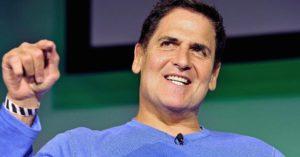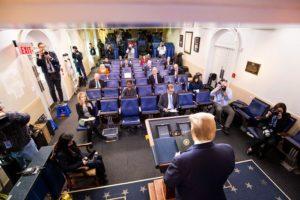By Recker McDowell —
How companies, communities, candidates and elected officials react to and handle the unrivaled impacts of the Coronavirus and its economic fallout will define them and their brands for a long time.
Just ask Mark Cuban.
Cuban, the owner of the Dallas Mavericks and a Shark Tank judge, tells CNBC the pandemic will test the mettle of employers and their brands.
“How companies respond to that very question is going to define their brand for decades. If you rushed in and somebody got sick, you were that company. If you didn’t take care of your employees or stakeholders and put them first, you were that company,” Cuban told the business network.
The Coronavirus has already resulted in record numbers of unemployment claims with pandemic grinding tourism, air travel, workplaces and much of the economy to a screeching halt.
The challenge for employers (large and small) is how they treat their employees and customers during this unprecedented stress. The contemporary consumer, employee and even investors want to believe in where they work or shop or do business.
The age of social media will amplify the employers who did right by their workers, customers and communities.
Twitter and Facebook will also shine light on those employers and businesses don’t show much loyalty or support for their employees or communities.
The same holds true for communities, elected officials and the media. This pandemic is causing incredible stresses and strains throughout our communities and economy.
It does provide opportunities for communities, businesses and elected officials at every level to show responsible leadership that balances public health and economic concerns.
A Gallup poll earlier this week showed President Donald Trump with a 60 percent approval rating for his handling of the Coronavrius. Eighty eight percent of Americans approve of how hospitals are handling the pandemic. But only 44 percent of the American public approves of how the media is doing its job with the Coronavirus. Some of that stems from perceived biases and criticisms that some outlets and some reporters are spreading fear.
The media, collectively, already struggles trust wise and in the marketplace.
The same dynamic holds true for elected officials from the White House and Washington down to the state and local levels.
That means taking actions that protect public health but also people’s livelihoods. It means avoiding the language and spirit of fear. It means having a plan of what do after the COVID-19 pandemic and panic eases. The imperative goes all the way down to the local level where economic development and growth policies need to focus on jobs, small businesses and impacted industries.
Voters are looking for elected officials who show responsible leadership, who try to balance public health and jobs and for those who don’t fear monger or push ideological agendas. We’ve seen that in the push back against U.S. Senators (on both sides) who held up the stimulus bill.
Consumers, employees, investors and voters are going to have strong memories of the pandemic including how their employers, how the companies and candidates and how the media and communities responded.

